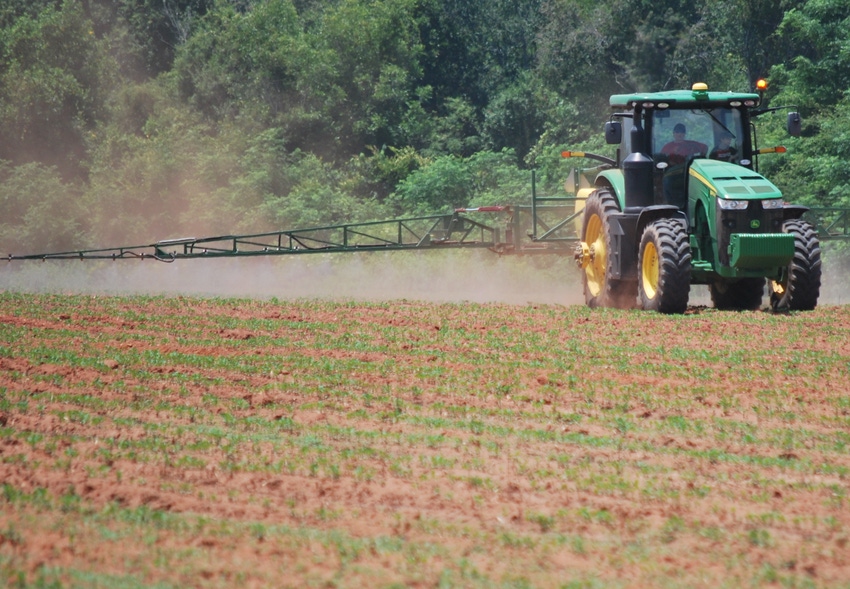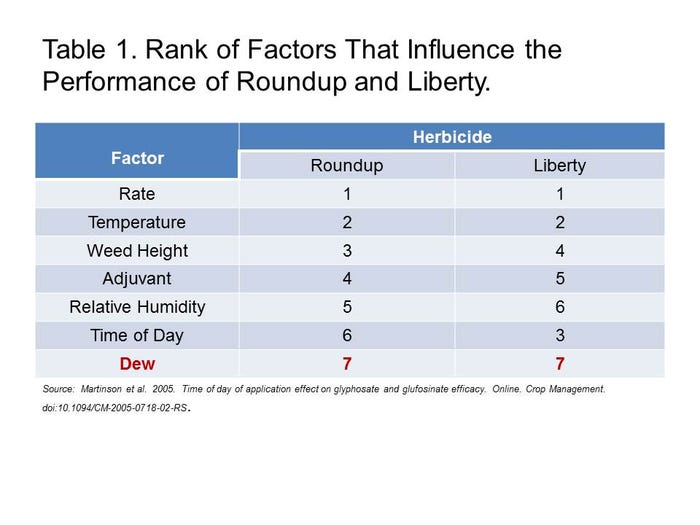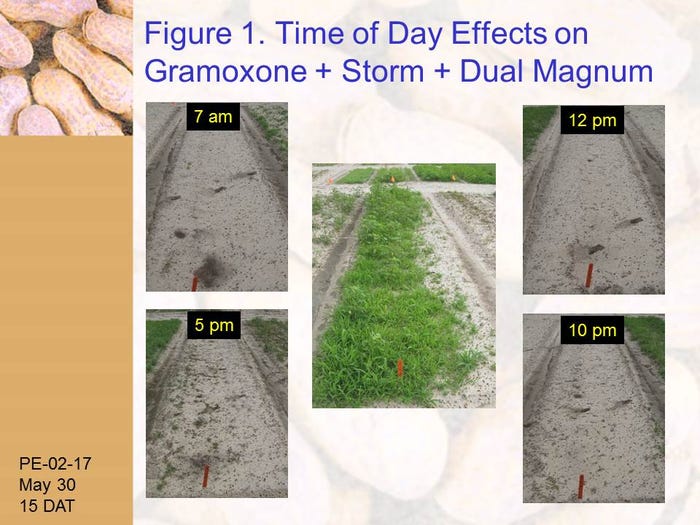January 17, 2018

It is hard to believe that another cropping season has come and gone. Although there is always a squeaky wheel to be greased on the farm, it is also a great time of the year to learn new things.
I strongly encourage growers to take advantage of every educational opportunity that will be provided by Extension and industry over the next few months. A lot of great folks are working on your behalf!
Not long ago, I was asked by one of UGA’s seasoned county Extension agents about the impacts of dew on herbicide performance. I reminded this agent that I have been spraying research plots for 30 years and I can never remember a morning that I waited for the dew to dry.
Time is my most precious commodity. The majority of my research spraying occurs between sunrise and 9 a.m., or until the wind shuts me down (> 5 MPH). At this time of day, there is almost always some amount of dew. Over all these years, I can’t recall that I ever had a major failure because of early morning dew (Figure 1).
Since this inquisitive Extension agent can sometimes be a ‘Doubting Thomas,’ and perhaps a few readers of this column are, too, what does the scientific data tell us about dew and herbicides?
Before I go any further, let me first define what dew is. According to the National Oceanic Atmospheric Administration National Weather Service, dew is defined as moisture that has condensed on objects near the ground, whose temperatures have fallen below the dewpoint temperature.� The dewpoint temperature is defined as the temperature to which air must be cooled in order to reach saturation (assuming air pressure and moisture content are constant).
A few years ago, a team of researchers from Minnesota evaluated the effects of various factors, including rate, temperature, weed height, adjuvants, relative humidity, time of day, and dew, on the performance of Roundup (glyphosate) and Liberty (glufosinate). Of these seven factors, dew was considered to be the least important (Table 1).
To be fair and balanced, other dew research has not been so positive. With Resource (flumiclorac) or Cadet (fluthiacet), the presence of dew resulted in a 5 percent reduction in the control of common lambsquarters and a 17 percent to 19 percent reduction in the control of redroot pigweed.
Because of these diverse research results, there are two schools of thought when it comes to the effects of dew on herbicide performance. There are many that believe that the influence of dew is positive. Leaf moisture that results in cuticle hydration can increase herbicide absorption into the plant. Others believe that the effects of dew are negative. In some scenarios, excessive leaf moisture can lead to herbicide runoff.
Because of my own personal experiences, I will set my tent up in the positive camp. However, I could not argue with an applicator who decided to delay if at the time of application dew or water was running off of a leaf like Niagara Falls.
Growers have many things to worry about every year. In the grand scheme, dew should probably not be one of those. If I were king for a day, I would prefer that growers obsess more about things such as calibration, rate, timing, GPA, tractor speed, nozzles, and modes of action.
If excessive dew makes you feel uncomfortable, delay the application. But, your worry then will be more about the wind and potential off-target movement. As everyone knows, off-target movement is not a very popular subject these days. I look forward to visiting with you at a local county production meeting this winter.
As always, good weed hunting!


About the Author(s)
You May Also Like






